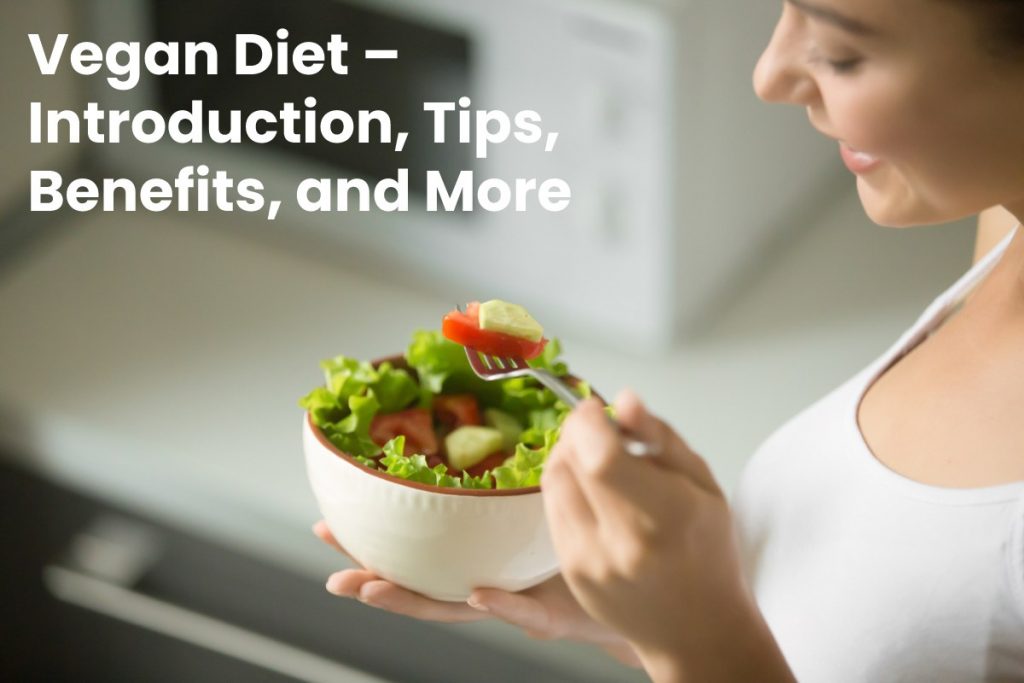Table of Contents
What is the Vegan Diet?
Vegan Diet – The vegan diet, or veganism, is a specific diet that bans any product of animal origin or involves any form of animal exploitation. This, therefore, concerns meat, fish, seafood, dairy products, eggs, and honey. The principle of this diet is therefore simple: banish all foods of animal origin from the plate. This also applies to products derived from animal exploitation, such as honey.
Vegans only consume foods from the animal kingdom. This includes fruits, vegetables, seeds, oilseeds and nuts, fungi, bacteria, legumes, and cereals.
Tips for Healthy Weight Loss While Being Vegan
Even though being a vegan and losing weight are two different things, it seems that adopting a vegan diet can help you achieve your goals. Here are some tips for losing weight rapidly and healthily as a vegan.
1. Vegan Diet – Increase Physical Activity
If you want to get free of your love handles, you need a calorie deficit, which means you need to provide your body with fewer calories than it uses. But that’s easier said than done. Vegan or not, the temptations are always there. It is therefore important to limit your energy intake, but also to increase your daily expenditure through sport and physical activity. By following a diet you will have consumed, in the best case, 300 to 500 kcal less than what you spent. How to know? Count your calories ingested and calculate what you have spent (apps can help you in both cases).
2. Vegan Diet – Eat a Variety
People who only follow a temporary vegan diet and have very little knowledge of nutrition should ensure that they are getting all the necessary nutrients for their body. Indeed, eating and drinking vegan does not mean that we eat like everyone else by simply eliminating foods of animal origin. To be healthy, you need to vary your diet and incorporate all available foods: vegetables, fruits, whole foods, legumes, nuts, seeds and possibly soy products.
3. Vegan Diet – Cooking at Home
If you are vegan, you should cook yourself and avoid ultra-processed products as much as possible. This general advice is particularly important in the context of a diet to lose weight (restricted diet) because ultra-processed foods tend to be high in fat and/or sugar and therefore in calories. Additionally, many vitamins and minerals are lost during the transformation process [3]. Discover many high-quality ingredients for cooking vegetables on the nu3 online store!
4. Vegan Diet – Drink a Lot
During a diet, it recommends to drink plenty of water (rich in calcium) and unsweetened teas as this helps to fill the void in the stomach. Additionally, a vegan diet is very high in fiber [4] , which helps fill you up and aids digestion. However, dietary fiber binds water, which must therefore be supplied to the body in large quantities.
5. Eat Healthy Snacks
Nuts and oilseeds are ideal for a vegan diet. They are not only delicious and very varied, but they are also easy to transport and store. In addition, they are very rich in quality essential nutrients, such as unsaturated fatty acids, proteins and fibers. However, they are high in fat and therefore high in calories. The quantity is therefore to be limited. This also applies to dried fruit, certainly less caloric than oilseeds, but still five times more caloric than fresh fruit.
Also Read: Skin Maceration – Introduction, Causes, Symptoms, and More
Differences Between Vegetarian, Vegan and Vegan
Vegetarian, vegan and vegan diets are very often confuses. Yet they are distinct diets, with their own characteristics. Here is a brief reminder of what sets them apart:
Vegetarians Consume all Foods Except Meat, Fish and Shellfish
Vegans only eat plants. They therefore exclude meat, fish, shellfish, dairy products, eggs and honey, which comes from the exploitation of bees.
As for vegans, they adopt the same diet as vegans. However, they transpose their principles to all aspects of life: cosmetics, clothing, medicines, etc. These products must not be composed of any animal material (leather, silk, gelatin, etc.) nor tested on animals. Often, vegans are vegan, but this is not always the case hence the distinction that must be made.
What are the Benefits of the Vegan Diet?
Rich in fiber, the vegan diet helps to accelerate the feeling of satiety and improves intestinal transit. It also decreases the intake of saturated fatty acids, usually found in butter, cold meats and cheese. The vegan diet limits the risk of overweight, obesity, diabetes and cardiovascular disease. In addition, “a balanced vegetable diet limits the risk of cancer, heart disease, hypertension, stroke, diabetes, obesity, osteoarthritis” continues the dietician-nutritionist.
What are the Risks of Deficiency in a Vegan Diet?
For our expert, anyone in good health with a balanced and varied diet can adopt the vegan diet without putting themselves in danger. However, the risk of deficiencies is the disadvantage that comes up most often when talking about a vegan diet. The lack of consumption of animal products and dairy products can lead to deficiencies in amino acids, vitamin B12, iron or even vitamin.
Conclusion
The vegan diet or vegan diet is a way of life consisting of not consuming any product derived from animals or their exploitation. Beyond leather, fur, wool, silk, cosmetics and medicines (tested on animals or containing animal substances), this way of life also excludes food products of animal origin such as meat, fish, dairy products, eggs or honey. Most of the time, this way of life adopt for ethical, health and/or ecological reasons.
Also Read: Green Tea Mask – Introduction, Face Masks, Benefits, and More
